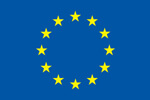CCRI was one of the lead partners in a ten-country consortium which conducted a major analysis of the design, implementation and emerging impacts of Rural Development Programmes (RDPs) funded under the so-called second pillar of the EU’s Common Agricultural Policy over the period 2007-13.
The study was funded under the EU’s Seventh Framework programme (FP7) for Research and Technological Development (RTD). RuDI: Rural Development Impacts aimed to provide complementary and in-depth, qualitative research to understand and evaluate these programmes, alongside the more restrictive and formal programme monitoring and evaluation procedures that are now required under EU legislation. Whereas the official EU ‘Common Monitoring and Evaluation Framework’ (CMEF) emphasizes the measurement of initial funding and the capture of quantitative indicators of impact, RuDI placed its emphasis upon examining and thereby understanding how the policy process – from context and initial design through to implementation, including ongoing refinement, evaluation and reform – can have direct effects upon programme performance.
Janet Dwyer led the CCRI team for this 30-month study which started in February 2008, with core support from James Kirwan, Damian Maye, Sandrina Pereira and Ken Thomson. The other project partners included:
- IfLS (Germany)
- INEA (Italy)
- Nordregio (Sweden)
- Wageningen University (NL)
- IUZE (Czech republic)
- Agricultural Universities of Thessaloniki (Gr) and Ljubliana (Sl)
- Austrian Mountain Institute BABF
- CEET (Estonia)
View this project on the EU CORDIS website
Final Conference – `Beyond indicators: evaluating the process of EU rural development policies´
CCRI project members of the RuDi project were in Brussels on 15 June for the final RuDi conference `Beyond indicators: evaluating the process of EU rural development policies´. More than 110 people participated in the event and the key findings and recommendations of the project were well received, by both the stakeholders and the policy-makers.
Loretta Dormal-Marino, the Deputy – Director General for Rural Development of Directorate General Agri (DG Agri) attended the conference, as did Danielle Tissot from DG Research, who funds the project under the 7th Research Framework Programme. Patrick Salez (DG Regio) and Mark Cropper (DG Agri) were also present to speak about the future of rural development policy.
Participants were wide-ranging; including researchers, representatives and policy makers from the European Commission, Leader groups (who are one of the final beneficiaries of the policy), national governments, and other key actors in the field of rural development.
The research findings and recommendations have been presented at a crucial time as they will be able to inform the policy making process of DG Agri, who is currently considering its proposals for the 2014-2020 framework period. The research will also help to establish an interface between science and policy for future collaborations.
The conference considered the research findings and policy recommendations for four topic areas:
- Designing better policy at EU and national levels for the coming funding period
- Improving policy delivery: both currently and in future funding periods
- Improving the evaluation of RD policies and facilitating institutional learning
- What is the future of RD? Key challenges for rural development.
The CCRI RuDI project team won a University of Gloucestershire Excellence Award. The Excellence Awards celebrate and reward teams of staff who, in the course of the year, have demonstrated an exceptional contribution to the Mission of the University. The RuDi team was judged to have delivered ‘research excellence’ and was presented with this prestigious award at the University of Gloucestershire Teaching Learning and Assessment Conference on 17 June 2010.


This project has received funding from the European Union’s Seventh Framework Programme for research, technological development and demonstration under grant agreement no 213034




